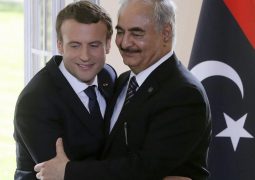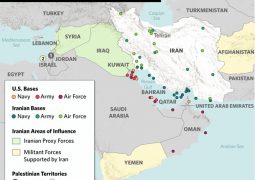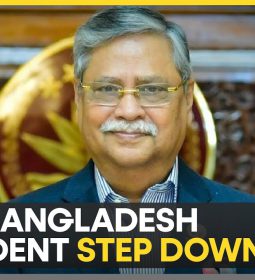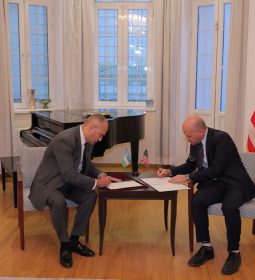What Impact – Zero: Kazakhstan joins Trump’s Abraham Accords, sidelining Palestine for U.S. ties

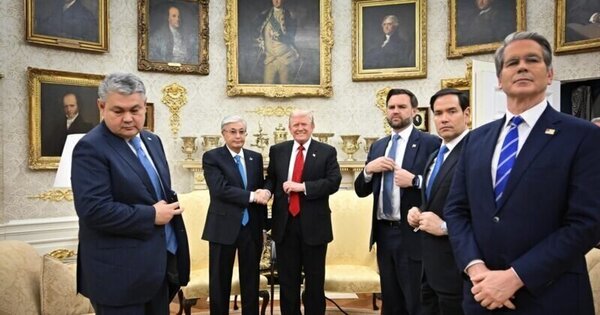
Through a Truth Social post, U.S. President Donald Trump announced that Kazakhstan is the newest country to join the Abraham Accords – a signature foreign policy initiative he launched during his first term and takes great pride in. The Accords were originally designed to normalize relations between Israel and Arab states, but with Kazakhstan’s inclusion, they now extend beyond the Arab world into Central Asia.
The purpose of the Abrahamic Accords is to foster normalization between Israel and Muslim-majority countries without addressing the Palestinian issue. By bypassing that issue, the Accords have effectively become a U.S.-driven effort to encourage Muslim nations to abandon the pursuit of the Palestinian cause and improve relations with Israel, regardless of Israel’s overt aggressive conduct in Palestine. That Kazakhstan has agreed to join the Accords even as reports of Israeli atrocities in Gaza continue to emerge underscores both the underlying purpose of the initiative and the willingness of some governments to sidestep the Palestinian question in pursuit of closer ties with the U.S. and Israel.
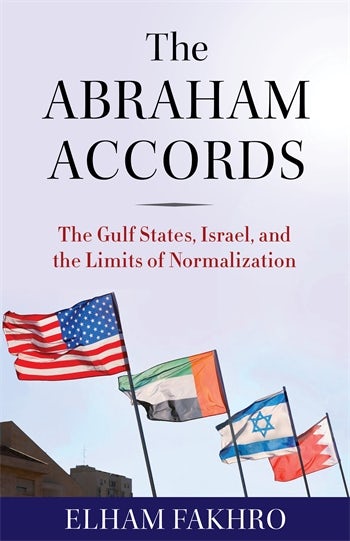
Ironically, the move comes at a time when several European countries, which have long been supportive of Israel, are re-evaluating their stance and recognizing the Palestinian state. Kazakhstan’s announcement thus comes as a big surprise.
Trump’s framing
The Abraham Accords were meant to normalize relations with Israel for countries that previously lacked them. Kazakhstan, however, has had diplomatic relations with Israel for over three decades. Israel was among the first countries to recognize Kazakhstan after its independence from the Soviet Union, following Türkiye, which was the first. The two nations have maintained trade and diplomatic ties ever since. Although total trade between Kazakhstan and Israel remains low, relations have long been stable and cooperative.
For that reason, Trump’s framing of this as a “normalization” announcement is misleading. At a time when Israel faces widespread condemnation, Kazakhstan’s gesture provides symbolic validation that can be used by both Trump and Israel to suggest that the world is not turning its back on Israel – indeed, that some countries are rewarding Israel even after the genocide in Gaza.
In his post, Trump declared that Kazakhstan is the first country of his second term to join the Abraham Accords and that “many more” would follow, likely referring to other Central Asian nations and possibly Saudi Arabia. Saudi Crown Prince Mohammed bin Salman is scheduled to visit Washington on Nov. 18, and there is widespread speculation that the Abraham Accords will be a central topic of discussion. So far, the crown prince has resisted U.S. pressure, balancing it with his own counter-demands, but Trump’s statement hinted at renewed pressure for Saudi participation.
In his announcement, Trump emphasized that the Accords promote “strength, stability and growth.” Yet, among the current signatories – the United Arab Emirates, Bahrain, Morocco and Sudan – these claims are questionable. Sudan, for example, has been mired in a civil war for nearly two years, facing accusations of genocide and neither the U.S. nor other signatories have made any meaningful efforts to stabilize the country. Trump’s renewed interest in Sudan appears motivated more by personal ambition, perhaps even a quest for a Nobel Prize, than by genuine peacebuilding under the Accords.
Kazakh aims vs. U.S. strings
This raises a fundamental question: What tangible benefits does Kazakhstan expect from joining? U.S. Secretary of State Marco Rubio suggested that while Kazakhstan and Israel already had established ties, joining the Accords would enhance those relations by connecting Kazakhstan to a broader group of partner nations, potentially opening doors to more investment and technology sharing. Yet most Central Asia experts interpret the move through the lens of Kazakhstan’s so-called “multi-vector” foreign policy, a deliberate attempt to hedge its interests and avoid dependence on any single power.
Kazakhstan’s outreach to the U.S. builds on its growing trade relationship with Washington. Closer U.S. ties could provide greater independence from China and Russia, which currently dominate its economy. Kazakhstan’s top trading partners are China, Russia, Türkiye and Italy, with trade volumes exceeding $30 billion with China, over $20 billion with Russia and more than $6 billion with Türkiye.
By contrast, trade with the U.S. remains modest, and with Israel, negligible. To achieve a truly balanced set of relationships, Kazakhstan would need deeper engagement with the U.S. However, doing so through the Abraham Accords could prove counterproductive, as participation in the Accords comes with political expectations that may ultimately constrain, rather than expand, Kazakhstan’s strategic autonomy.
The Accords demand more than diplomatic normalization; they impose clear political expectations. Member countries are discouraged from criticizing Israel, expected to downplay or ignore Palestinian statehood, and to remain silent on Israeli military actions. In return, they receive proximity to Washington, ceremonial White House visits and occasionally access to Israeli technology.

For Kazakhstan, seeking closer ties with the U.S. through this framework, particularly amid quiet competition with Uzbekistan for American attention, may erode rather than enhance its independence. It could also provoke displeasure from both Russia and China. Trump is likely to pressure Kazakhstan to scale back trade with Russia as long as the war in Ukraine continues, putting Astana in a difficult position.
Regional reactions, implications
It is surprising that China, Russia and Türkiye maintain deep economic and security ties with Kazakhstan. Kazakhstan’s memberships in both the Shanghai Cooperation Organization (with Russia and China) and the Organization of Turkic States (with Türkiye) reflect these close ties. I will be surprised if these nations do not pressure and even punish Kazakhstan for taking this step.
While Turkey’s NATO alignment and improving ties with the U.S. may limit its ability to oppose the move openly, both Moscow and Beijing are likely to voice their displeasure. The timing must be particularly galling. Just when Türkiye issues arrest warrants for Israeli Prime Minister Benjamin Netanyahu over crimes in Gaza, Türkiye’s close ally Kazakhstan moves to join Israel in a strategic partnership. For a Muslim, Turkic nation like Kazakhstan to move toward normalization with Israel under these circumstances effectively grants Netanyahu a measure of international legitimacy.
It is a shame that, in the name of pragmatism and national interest, some countries are willing to look the other way while genocide takes place. At present, there are two genocides unfolding within the Abraham Accords club. For Kazakhstan to join that club sends a clear signal: values, human rights and human life matter very little in the pursuit of a so-called pragmatic foreign policy. The planned three-way meeting at the White House between Trump, Netanyahu and the Kazakh president, hopefully, will be viewed negatively in Istanbul, Moscow and Beijing.
- Previous Things go as usual: Chinese keeps hating Japan PM Takaichi – this time over her Taiwan comments
- Next Pakistan Gets Kickback for Political Support: Azeris buy Chinese JF-17 Thunder Jets, made in Rawalpindi



